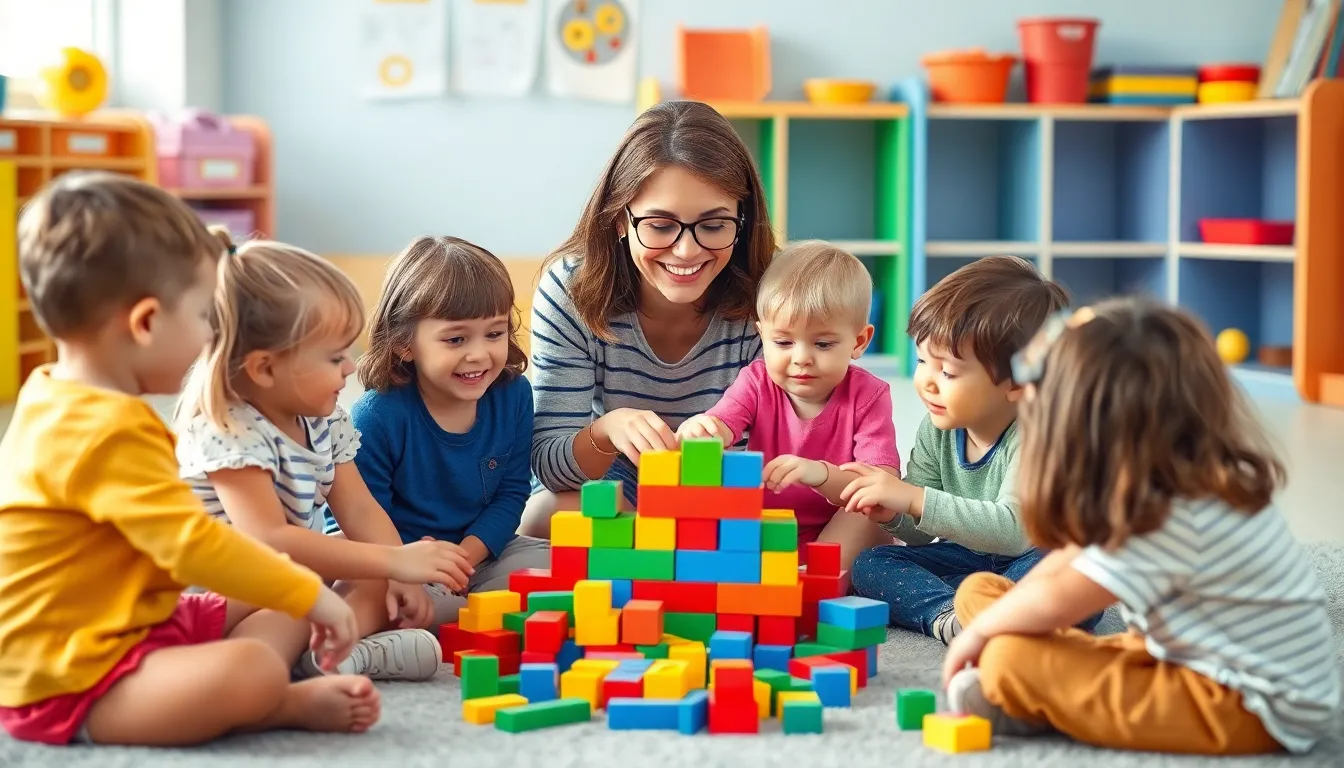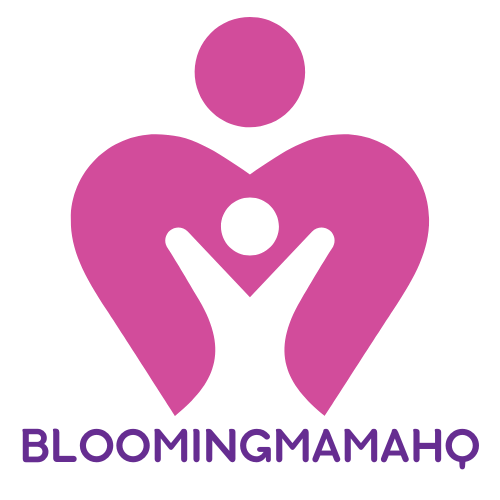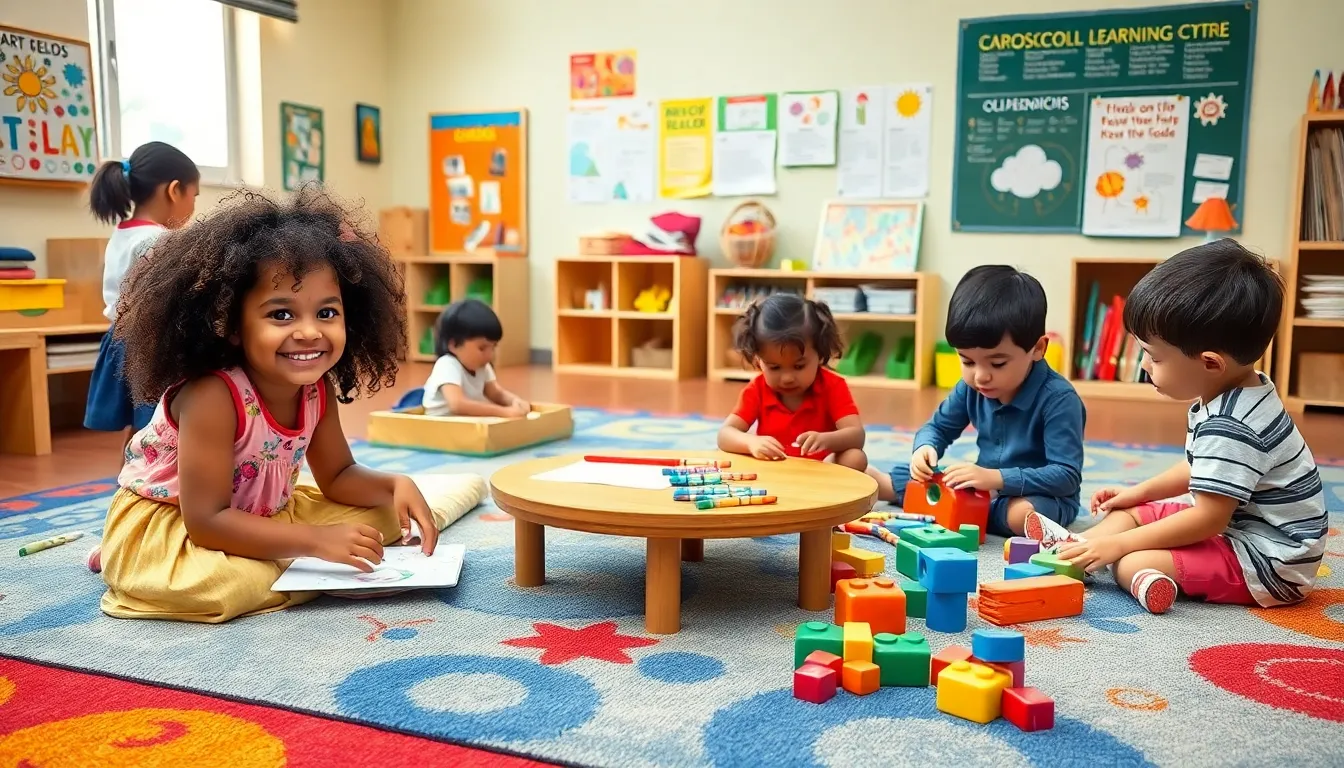In a world where toddlers can turn a simple box into a spaceship, the right preschool learning center can be a launchpad for their imagination and development. These vibrant hubs of creativity are where little minds blossom, friendships form, and the foundations for lifelong learning are laid. Who knew that learning could be so much fun?
Table of Contents
ToggleOverview of Preschool Learning Centers
Preschool learning centers represent vital environments for early childhood education. They focus on nurturing creativity, social skills, and foundational knowledge. Children engage in play-based learning, which fosters imagination and curiosity.
These centers often include designated areas for art, science, reading, and imaginative play. Each area is tailored to encourage exploration and hands-on experiences. Educators at these facilities implement structured activities that promote critical thinking.
Socialization plays a key role in child development within preschool learning centers. Young learners interact with peers, honing their ability to communicate and cooperate. Friendships established here can last a lifetime, enhancing emotional development.
Curricula in preschool learning centers often follow developmental guidelines designed for different age groups. Teachers assess progress through observations and tailored activities, ensuring each child receives personalized attention.
They also provide a safe and nurturing atmosphere, essential for boosting a child’s confidence. Respect for diverse cultures and backgrounds contributes to a rich learning environment. Learning centers often collaborate with parents to track progress and support children’s growth.
Overall, preschool learning centers serve as the foundation for lifelong learning. They instill a love for education while fostering essential skills for future academic success.
Importance of Preschool Learning Centers

Preschool learning centers significantly influence early childhood development. They provide structured environments that nurture various skills essential for later academic success.
Social Development
Social development thrives within preschool learning centers. Children engage in group activities that foster teamwork and cooperation. Friendships blossom through interactive play, helping young learners build vital social skills. Communication becomes easier as kids express thoughts and feelings with peers. Conflict resolution emerges as they navigate differences, teaching empathy and respect. Teachers facilitate these interactions, guiding social behavior while promoting inclusivity. Encouraging diverse social experiences enriches peer relationships and helps children understand cultural diversity. These centers serve as safe spaces for emotional expression, ultimately supporting well-rounded social growth.
Cognitive Development
Cognitive development flourishes in preschool learning centers. Engaging activities stimulate curiosity and creativity among young learners. Opportunities for exploration encourage problem-solving skills while hands-on experiences promote critical thinking. Exposure to various subjects, such as art, science, and literacy, fosters knowledge acquisition. Teachers customize learning experiences based on individual progress, ensuring that each child thrives. Skills such as counting, letter recognition, and basic math emerge organically through play-based activities. Early exposure to structured learning equates to a strong foundation for future academic pursuits. Effective curricula encourage lifelong learning, shaping inquisitive minds ready to tackle challenges.
Key Features of an Effective Preschool Learning Center
Effective preschool learning centers incorporate essential features that foster enriching environments for young learners. Attention to curriculum and educator qualifications plays a significant role in this development.
Curriculum and Learning Activities
Curricula at preschool learning centers focus on holistic educational approaches. Engaging activities promote exploration and creativity. Structured play experiences incorporate art, science, reading, and imaginative play. While fostering social interaction, these activities help develop communication skills. Tailoring lessons for different age groups ensures that all children benefit from appropriate challenges. Observations allow teachers to adapt learning experiences, fostering individual growth. Integrating play-based learning maintains children’s interest and enhances foundational skills like counting and letter recognition.
Qualified Educators
Qualified educators stand at the forefront of effective preschool learning centers. They bring expertise in early childhood education and an understanding of developmental milestones. Trained educators create nurturing atmospheres that respect cultural diversity. Engaging with children through guided interactions fosters critical thinking and cooperative skills. Ongoing professional development keeps educators informed about current pedagogical practices. Personalized attention ensures every child’s unique needs are met, enhancing both confidence and enthusiasm for learning. With their supportive approach, these educators instill a lifelong love for knowledge that benefits children in their future academic journeys.
Choosing the Right Preschool Learning Center
Selecting the ideal preschool learning center is crucial for fostering children’s growth. The right environment impacts their early development significantly.
Factors to Consider
Safety ranks as the top priority when evaluating preschool centers. Secure facilities with child-proofed areas ensure a protective setting for exploration. Teachers’ qualifications also play a vital role; look for educators trained in early childhood education. The center’s class size affects attention; small groups allow for personalized instruction. Curriculum variety helps maintain engagement, so centers offering diverse activities promote holistic development. Location convenience eases daily commute challenges. Consider parent reviews as well; positive feedback reflects quality experiences.
Educational Philosophy
Examining the educational philosophy of a preschool center provides insights into its approach. Some centers emphasize play-based learning, acknowledging the importance of play in skill development. Others may adopt structured methods, focusing on direct instruction and academics. Alignment with a family’s values shapes learning preferences. Centers embracing inclusivity foster a diverse environment, allowing children to learn from one another. Understanding the teacher-to-child relationship also matters; strong bonds with educators enhance learning and emotional security. Choosing a center that resonates with a family’s educational philosophy supports a positive preschool experience.
Preschool learning centers are vital in shaping a child’s early development. They provide a nurturing environment that encourages creativity and social interaction. With a focus on play-based learning, these centers lay the groundwork for essential skills that will benefit children throughout their academic journey.
Choosing the right preschool learning center is crucial for families. By considering factors like safety, teacher qualifications, and educational philosophy, parents can ensure their child thrives in an environment that aligns with their values. Ultimately, these centers not only foster a love for learning but also equip children with the tools they need to succeed in the future.



